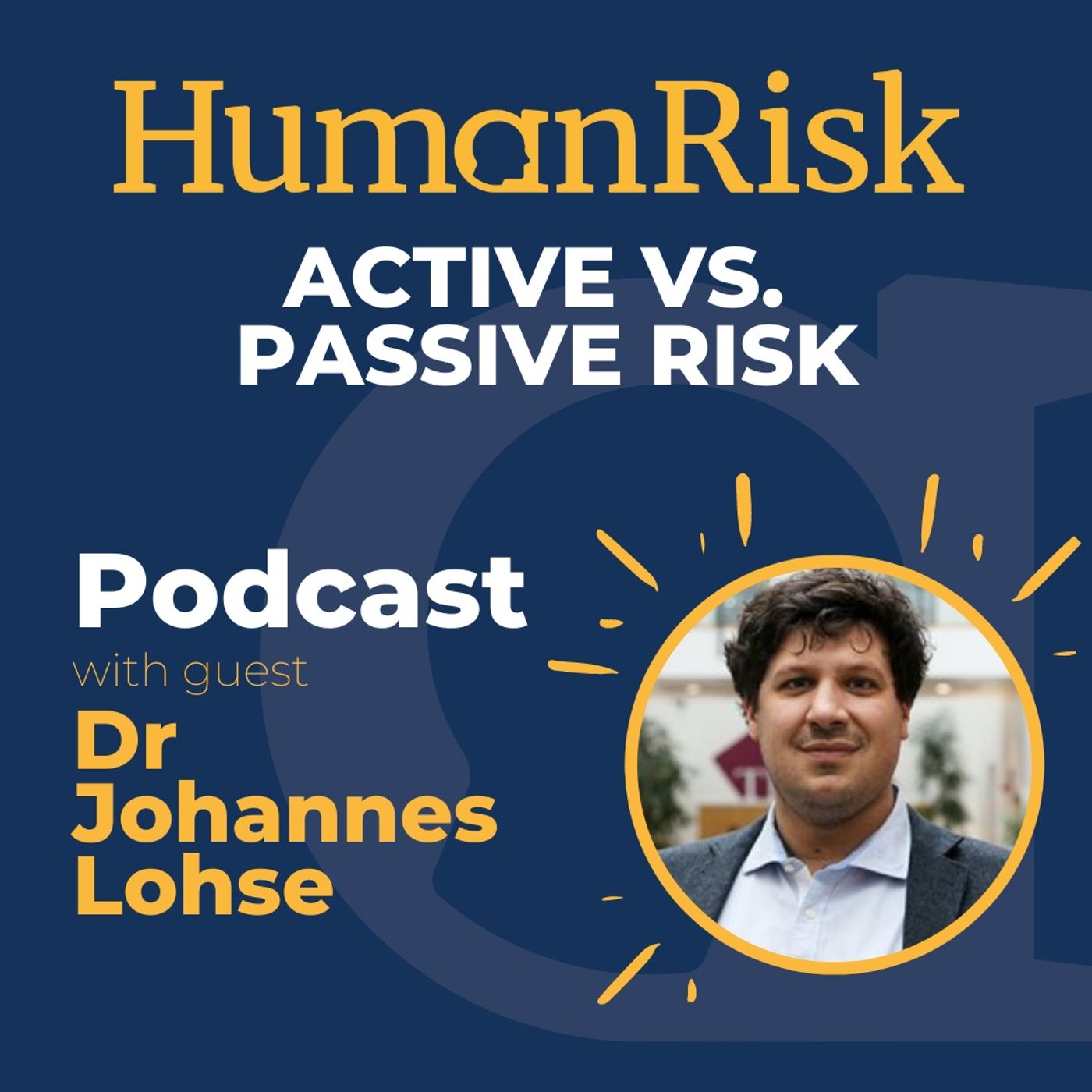Dr Johannes Lohse on Active vs Passive Risk: how doing nothing can also cause risk.

When we think of risk, it is usually in the context of 'risk-taking'; in other words, an active decision to do something. But it is equally possible to take risk by doing nothing; passive risk. What differentiates the two and is passive risk really...
When we think of risk, it is usually in the context of 'risk-taking'; in other words, an active decision to do something. But it is equally possible to take risk by doing nothing; passive risk. What differentiates the two and is passive risk really a risk?
That's what my guest this time Dr Johannes Lohse has been researching. In our discussion, we explore a recent paper he published with Dr Christian König-Kersting & Dr Anna Louisa Merkel on this very topic. You can find that here: https://ideas.repec.org/p/inn/wpaper/2020-04.html
This subject is highly relevant to Human Risk, which I define as "the risk of people doing things they shouldn't, or not doing things they should". In other words, both active and passive risk-taking by people.
You can find out more about Johannes' work here: https://www.birmingham.ac.uk/staff/profiles/business/lohse-johannes.aspx




















